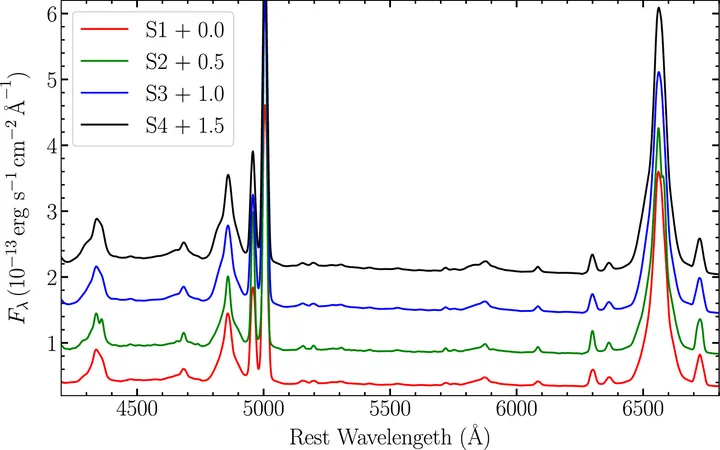
Singapore Businesses Prepare for 2025's Choppy Waters Following a Year of Transformation
2024-12-27
Author: Rajesh
SINGAPORE – As Singaporean companies emerge from a challenging but transformative 2024, they are gearing up for potential turbulence in 2025. The past year witnessed various enterprises re-engineering their operations, not out of choice, but as a response to soaring business costs and a severe shortage of skilled talent.
Despite an improved economy in 2024, many businesses opted for a conservative approach, prioritizing stability over growth amid global uncertainties and inflationary pressures, according to Ms. Joanne Tan, Deputy Managing Director for Industry at Enterprise Singapore.
While businesses remain in a “watch-and-see” mode, a significant shift is underway towards investing in cutting-edge technologies. Both artificial intelligence (AI) and digitalization are high on the priority list, as companies strive to meet international standards for sustainability and operational efficiency. With more than 300,000 small and medium-sized enterprises (SMEs) constituting 99% of local businesses, these enterprises are at the forefront of this technological evolution.
A recent survey by the Singapore Business Federation (SBF) revealed a notable increase—7%—in the number of companies enhancing their digital operations in 2024, compared to the previous year. This emphasis on resilience and innovation is particularly vital for smaller firms, which face stiff competition from regional players and agile tech startups leveraging AI.
However, the performance across various sectors remains varied, with many SMEs reporting “poor or neutral” performance levels, highlighted by ASME President Ang Yuit. The food and beverage sectors, alongside retail, are particularly burdened by high operating costs and cautious consumer spending.
Looking ahead, Singapore's economy is projected to grow by 3.5% in 2024, an improvement over prior estimates, although key sectors including accommodation and retail may struggle. Economists foresee a stable yet sluggish growth trajectory for 2025, with many SMEs bracing for a repeat of 2024's challenges or even worse outcomes.
External factors such as US-China trade dynamics, rising tariffs, and continuing geopolitical tensions, especially in the Middle East, introduce additional uncertainty. The struggle to secure a competent workforce persists, compounded by competition from innovative companies both regionally and globally.
Kok Ping Soon, CEO of SBF, underscores the potential ramifications of international tensions on local businesses engaging in cross-border trade. He warns that trade disruptions could inflate costs and diminish competitiveness, making it essential for SMEs to adapt and explore alternative markets.
The SBF’s survey indicates a noteworthy shift; 85% of businesses engaged in regional trade in 2023 expressed a growing interest in expanding their influence beyond traditional American and Chinese markets into the ASEAN region.
On a more positive note, Mr. Koh Kar Siong from DBS Bank anticipates that falling interest rates in 2025 could enhance financing opportunities for businesses, while diversified supply sources may help reduce operational costs. The increasing trend of companies diversifying their supply chains, particularly through the "China Plus One" strategy, represents a strategic hedge against risk.
Prominent local firms, notably Wah & Hua in waste management, have demonstrated resilience through innovative operational strategies devised during 2024. CEO Melissa Tan credits participation in Enterprise Singapore’s Scale-Up program for enabling the company to optimize efficiency and pivot towards higher-margin services, while also embracing sustainability.
EtonHouse International Education Group faced similar obstacles, grappling with increased costs and educator shortages. Collaborating with the government, they developed an AI-powered lesson planner to enhance productivity—a crucial move given their expansion plans, including new schools slated to open in Saudi Arabia in 2025.
Digital security firm V-Key enjoyed a productive 2024, renewing major contracts, launching new solutions, and maintaining staff levels despite rising talent costs associated with cybersecurity in Singapore. COO Raymond Lee emphasized the pivotal need for businesses to adapt to the increasingly complex political landscape in Southeast Asia.
In closing, Mr. Yogesh Sangle from Instarem encapsulates the overarching theme for SMEs in 2024 as “doing more with less.” He anticipates a strong foreign expansion for local companies, invigorated by the anticipated drop in interest rates, paving the way for renewed investment in growth-driving capabilities.
As Singaporean firms prepare for the uncertain terrain of 2025, the focus remains clear: adaptability, innovation, and resilience will be key to navigating the challenges ahead.



 Brasil (PT)
Brasil (PT)
 Canada (EN)
Canada (EN)
 Chile (ES)
Chile (ES)
 España (ES)
España (ES)
 France (FR)
France (FR)
 Hong Kong (EN)
Hong Kong (EN)
 Italia (IT)
Italia (IT)
 日本 (JA)
日本 (JA)
 Magyarország (HU)
Magyarország (HU)
 Norge (NO)
Norge (NO)
 Polska (PL)
Polska (PL)
 Schweiz (DE)
Schweiz (DE)
 Singapore (EN)
Singapore (EN)
 Sverige (SV)
Sverige (SV)
 Suomi (FI)
Suomi (FI)
 Türkiye (TR)
Türkiye (TR)